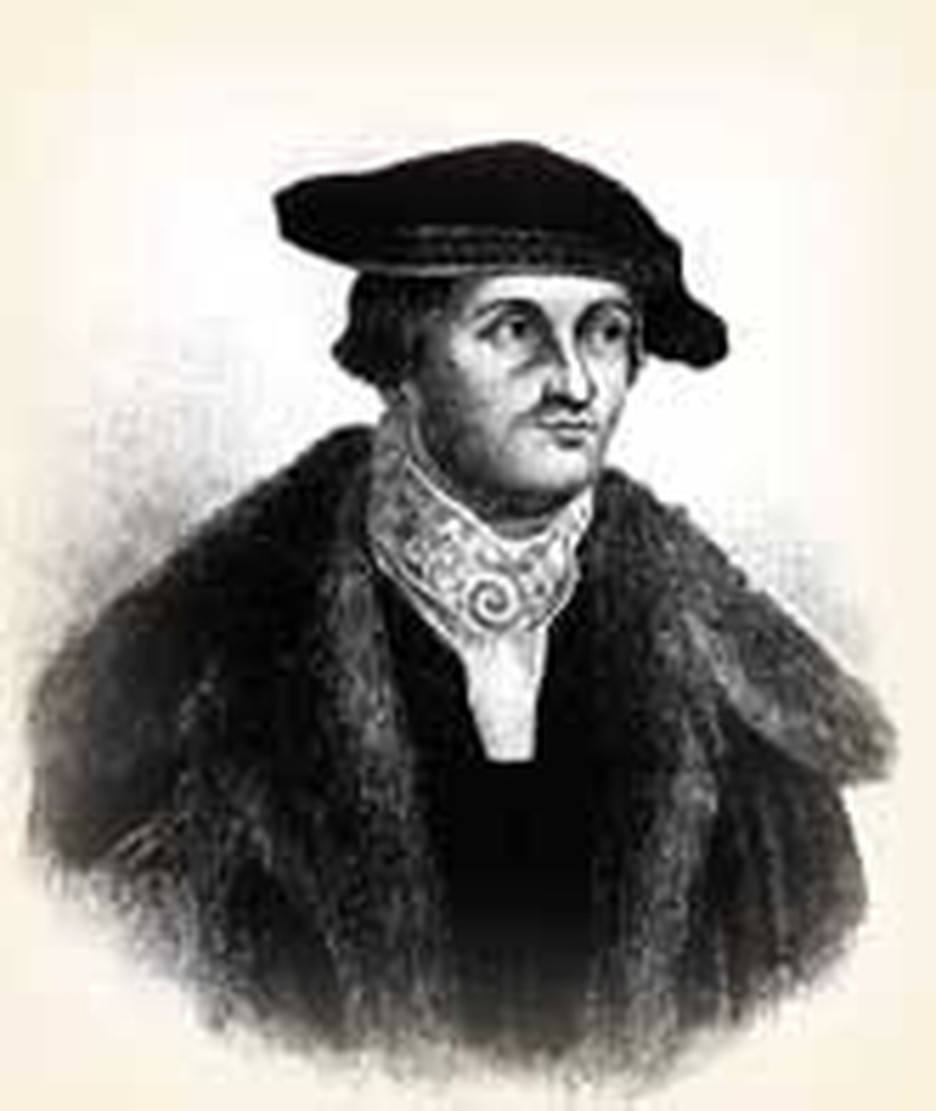
George Burkhardt was born on this day, January 17, 1484 in Spalt, near Nurnberg, Germany. A humanities scholar, he studied at Erfurt and Wittenberg, one of the first Masters of Arts to graduate from Wittenberg. Like other humanists of the day, he was known by a name other than his birth name--Spalatin, after the town of his birth. The Prince Elector, Frederick the Wise of Saxony, hired the rising young scholar to tutor his sons. Spalatin showed so much good sense and scholarship that Frederick made him his secretary and librarian, both prestigious positions, from which he would advise the Prince and research official records and laws. From court, he assisted his Alma Mater, Wittenberg.
Even had he wanted to, Spalatin could not have escaped reformation ideas, for they were in the air. Erasmus had poked fun at the excesses of a corrupt church. When Spalatin returned to Wittenberg in 1511, Luther (who had not yet nailed up his ninety-five theses) set Spalatin to studying the Bible.
Spalatin was an advocate of reform when the day came. Historians are agreed that the Reformation would probably not have survived without his assistance. His advice was gold with Frederick the Wise. As his confidential secretary, councilor, librarian, historian, archivist, and relic-buyer, Spalatin was able to speak favorably for Luther. Frederick personally clung to the Roman Church, but at the same time, gave cautious support to Luther.
One of Spalatin's political maneuvers in behalf of the beleaguered Luther, was to convince the Elector to negotiate with the Church to permit the reformer to answer the church's charges before a German Diet (Congress). Thanks to that, Luther survived to carry on the Reformation.
Luther kept Spalatin posted of his doings, writing him more than 400 letters. Melanchthon also wrote Spalatin with concerns over the University of Wittenberg, concerns which Spalatin took up with the Elector.
In a typical letter, Luther wrote to Spalatin after Eck had published Exsurge Domine, a bull (official letter) from Pope Leo X, condemning Luther's teachings. "This bull condemns Christ himself. It summons me not to an audience but a recantation. I am going to act on the assumption that it is spurious, though I think it is genuine... I do not know what the prince should do unless to dissemble (put on a pretense). I am sending you a copy of the bull that you may see the Roman monster. The faith and the church are at stake. I rejoice to suffer in so noble a cause. I am not worthy of so holy a trial. I feel much freer now that I am certain the pope is Antichrist... Farewell and pray for me."
Spalatin married and wrote books. He continued to work for the Reformation to the end of his life, although his last years were darkened by depression. The end came on January 16, 1545, one day before his sixty-first birthday. The reformers had much reason to be heartily glad of Spalatin's assistance.
Bibliography:
- Bainton, Roland H. Here I Stand; A Life of Martin Luther. New York: Mentor, 1950.
- "Georg Spalatin." http://www.luther.de/en/spalatin.html
- "Spalatin, Georg." The Oxford Dictionary of the Christian Church, edited by F. L Cross and E. A. Livingstone. Oxford, 1997.
- Various internet and encyclopedia articles.
Last updated June, 2007








